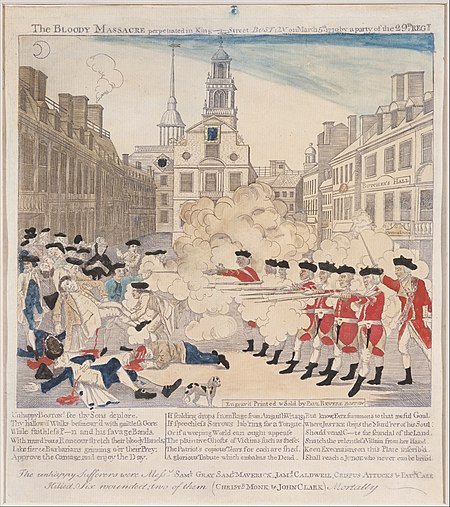On March 5th, 1770, a pivotal event in American history unfolded in the heart of Boston. Known as the Boston Massacre, this tragic incident marked a turning point in the relationship between the American colonists and the British Empire. The events leading up to this fateful day, the clash between British soldiers and the colonists, and the aftermath of the Boston Massacre all played a significant role in fueling the flames of the American Revolution.
Tensions had been simmering between the American colonists and the British authorities for years prior to the Boston Massacre. The colonists were growing increasingly frustrated with British policies and taxation without representation. The presence of British troops in Boston further exacerbated these tensions, as the soldiers were seen as an oppressive force by the colonists.
On the evening of March 5th, a group of colonists gathered outside the Customs House in Boston. They were protesting against the presence of British troops and the occupation of their city. The situation quickly escalated when a British soldier, Private Hugh White, was confronted by a young apprentice named Edward Garrick. Tempers flared, and soon a small crowd had gathered, hurling insults and snowballs at the soldiers.
As the tension mounted, Captain Thomas Preston, the officer in charge of the British troops, arrived on the scene. He tried to maintain order and prevent further escalation, but the situation spiraled out of control. The soldiers, feeling threatened by the angry mob, opened fire on the colonists. In the chaos that ensued, five colonists were killed, including Crispus Attucks, an African American man who would later be hailed as a martyr for the American cause.
The Boston Massacre sent shockwaves throughout the American colonies. News of the incident spread rapidly, fueling anti-British sentiments and galvanizing the colonists in their pursuit of independence. The event became a rallying cry for those who believed in the need to break free from British rule.
The aftermath of the Boston Massacre saw the British soldiers involved in the incident put on trial. They were defended by prominent lawyer and future U.S. President, John Adams. Adams argued that the soldiers had acted in self-defense, and successfully convinced the jury to acquit six of the soldiers. Two soldiers were found guilty of manslaughter, but their punishment was reduced to branding on the thumb.
The Boston Massacre had a profound impact on the American Revolution. It served as a symbol of British oppression and helped unite the American colonists in their fight for independence. The incident also played a crucial role in shaping public opinion both in the American colonies and in Britain itself.
To this day, the Boston Massacre remains a significant event in American history. It serves as a reminder of the sacrifices made by those who fought for freedom and the importance of standing up against injustice. The site of the Boston Massacre is now marked by a memorial, honoring the lives lost and the legacy of this pivotal moment in the nation’s history.
For more information on the Boston Massacre and its historical significance, you can refer to the following external references:
1. “The Boston Massacre” – History.com
(Link: https://www.history.com/topics/american-revolution/boston-massacre)
2. “The Boston Massacre: A Family History” – National Park Service
(Link: https://www.nps.gov/bost/learn/historyculture/boston-massacre.htm)
3. “The Boston Massacre: A Turning Point in the American Revolution” – Smithsonian Magazine
(Link: https://www.smithsonianmag.com/history/boston-massacre-24082586/)
The Boston Massacre stands as a stark reminder of the struggles and sacrifices that paved the way for the birth of a nation. It is an event that forever changed the course of American history and continues to resonate with the ideals of liberty and justice for all.
SEO Excerpt:
The Boston Massacre, which occurred on March 5th, 1770, was a pivotal event in American history. This tragic incident, where British soldiers opened fire on a taunting crowd of colonists in Boston, marked a significant escalation towards the American Revolution. Learn more about the historical background, events leading up to the Boston Massacre, and its aftermath in this informative article.

